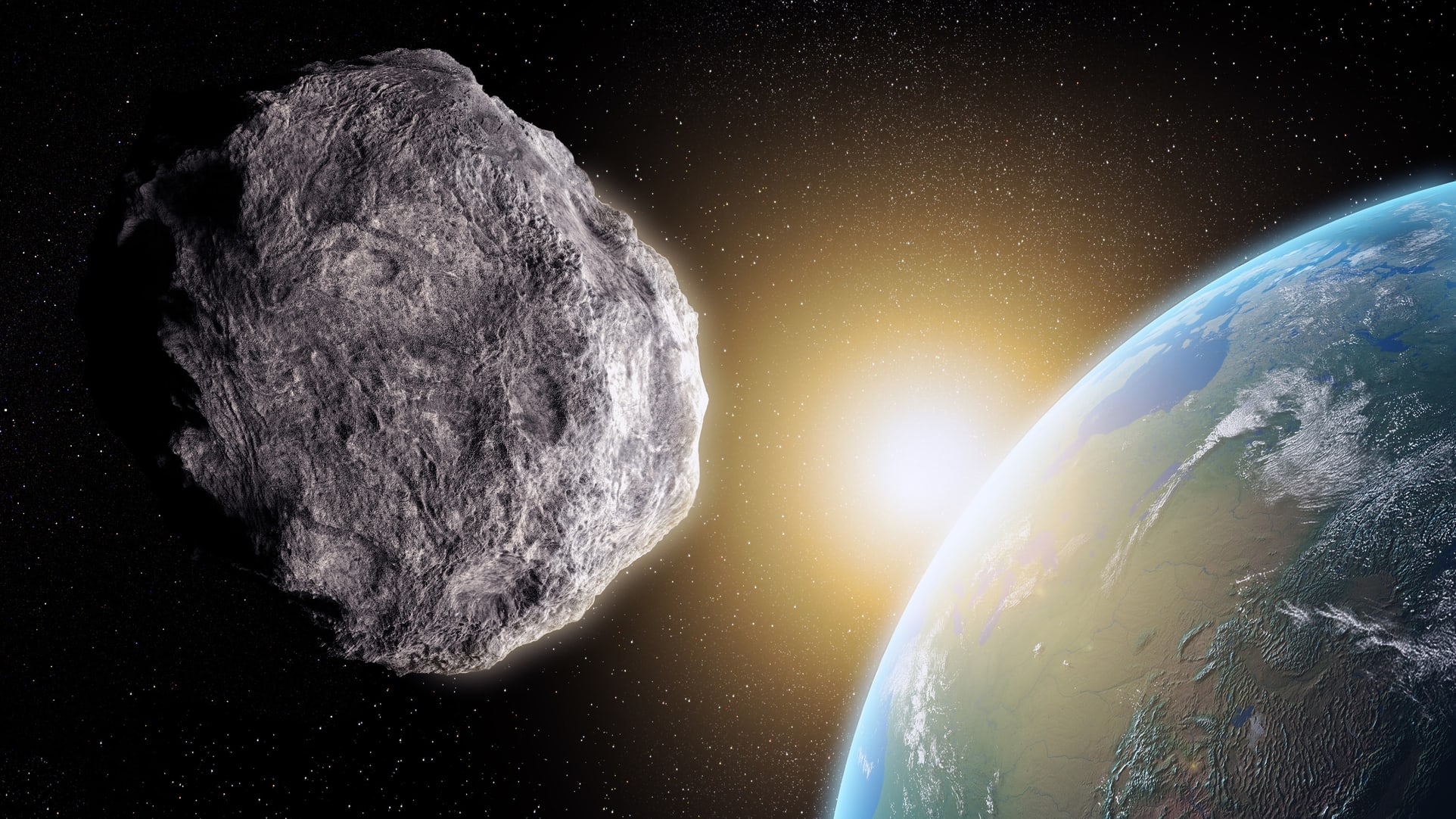Asteroid set to pass by Earth about as close as the moon


A free daily email with the biggest news stories of the day – and the best features from TheWeek.com
You are now subscribed
Your newsletter sign-up was successful
An asteroid is set to pass near Earth at a distance just greater than the distance between the Earth and the moon. Approximately the size of a bus, according to NASA's Center for Near-Earth Object Studies (CNEOS), the asteroid named 2023 HV5 will approach Earth at a distance of approximately 270,000 miles, Newsweek writes. For reference, the moon is approximately 240,000 miles away from Earth.
Despite appearing to not be that close, this is considered a near-Earth object (NEO) in the context of outer space, especially since the asteroid will be moving at 20,000 miles per hour. NEOs are "generally defined as an asteroid or comet that approaches our planet less than 1.3 times the distance from Earth to the Sun," and for the most part, tend to not be a threat, per NASA. They also "may provide needed raw materials for future interplanetary exploration" and "some should also be fairly easy to land on for future exploration."
Asteroids are "rocky fragments left over from the formation of the solar system about 4.6 billion years ago," that are mostly located between Jupiter and Mars. "However, as they are relatively small, asteroids can be disturbed quite easily, so they can develop orbits that cross those of planets," Jay Tate, the director of the Spaceguard Center observatory told Newsweek. Some especially close and large asteroids may get the designation of "potentially hazardous" because there could be a risk of it colliding with the Earth. "The 'potentially hazardous' designation simply means over many centuries and millennia the asteroid's orbit may evolve into one that has a chance of impacting Earth," according to Paul Chodas of CNEOS in Newsweek.
The Week
Escape your echo chamber. Get the facts behind the news, plus analysis from multiple perspectives.

Sign up for The Week's Free Newsletters
From our morning news briefing to a weekly Good News Newsletter, get the best of The Week delivered directly to your inbox.
From our morning news briefing to a weekly Good News Newsletter, get the best of The Week delivered directly to your inbox.
2023 HV5 is not considered to be potentially hazardous because of its size. In fact, there are no NEOs in the next 100 years that are predicted to hit Earth.
A free daily email with the biggest news stories of the day – and the best features from TheWeek.com
Devika Rao has worked as a staff writer at The Week since 2022, covering science, the environment, climate and business. She previously worked as a policy associate for a nonprofit organization advocating for environmental action from a business perspective.
-
 The environmental cost of GLP-1s
The environmental cost of GLP-1sThe explainer Producing the drugs is a dirty process
-
 Greenland’s capital becomes ground zero for the country’s diplomatic straits
Greenland’s capital becomes ground zero for the country’s diplomatic straitsIN THE SPOTLIGHT A flurry of new consular activity in Nuuk shows how important Greenland has become to Europeans’ anxiety about American imperialism
-
 ‘This is something that happens all too often’
‘This is something that happens all too often’Instant Opinion Opinion, comment and editorials of the day
-
 NASA’s lunar rocket is surrounded by safety concerns
NASA’s lunar rocket is surrounded by safety concernsThe Explainer The agency hopes to launch a new mission to the moon in the coming months
-
 Nasa’s new dark matter map
Nasa’s new dark matter mapUnder the Radar High-resolution images may help scientists understand the ‘gravitational scaffolding into which everything else falls and is built into galaxies’
-
 Moon dust has earthly elements thanks to a magnetic bridge
Moon dust has earthly elements thanks to a magnetic bridgeUnder the radar The substances could help supply a lunar base
-
 How Mars influences Earth’s climate
How Mars influences Earth’s climateThe explainer A pull in the right direction
-
 The ‘eclipse of the century’ is coming in 2027
The ‘eclipse of the century’ is coming in 2027Under the radar It will last for over 6 minutes
-
 NASA discovered ‘resilient’ microbes in its cleanrooms
NASA discovered ‘resilient’ microbes in its cleanroomsUnder the radar The bacteria could contaminate space
-
 Artemis II: back to the Moon
Artemis II: back to the MoonThe Explainer Four astronauts will soon be blasting off into deep space – the first to do so in half a century
-
 The mysterious origin of a lemon-shaped exoplanet
The mysterious origin of a lemon-shaped exoplanetUnder the radar It may be made from a former star
